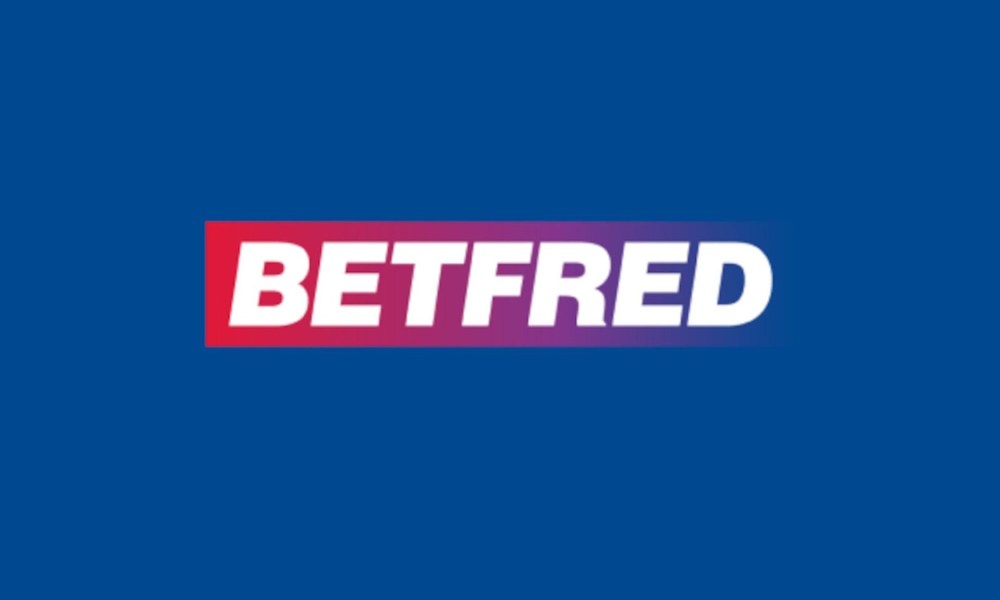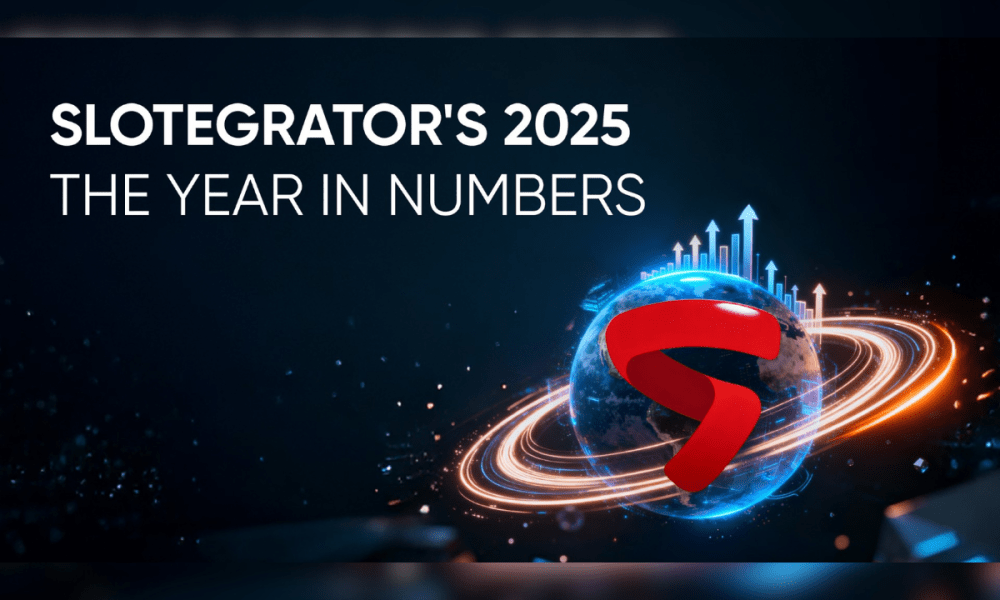Latest News
Portrait of a Fraudster Then and Now: How Scammers’ Habits and Tactics Are Changing
Fraud in the iGaming sector is no longer the work of lone opportunists. Today’s scammers operate in well-organized, tech-savvy networks – quietly exploiting systems that weren’t built to catch them. And as the digital economy grows, so too does the complexity of fraud schemes targeting gaming operators.
Amid this evolving threat landscape, Frogo has emerged as a company redefining how fraud prevention should work. We spoke with Volodymyr Todurov, CEO at Frogo, to get an inside look at how fraudsters are changing their tactics – and what operators can do to stay ahead.
Fraudsters evolve fast – how does your system stay one step ahead without overwhelming teams with false alarms?
Absolutely, the landscape of fraud is constantly shifting and staying ahead requires more than static rules. At Frogo, we’ve developed a dynamic system that adapts in real-time to user behavior and transaction contexts. Our platform learns from both fraudulent and legitimate activities, enabling it to distinguish between the two more effectively. This approach reduces false positives and ensures that our clients’ teams can focus on genuine threats without being bogged down by unnecessary alerts.
Can you walk us through a real-world case where your platform uncovered a fraud scheme traditional tools missed?
Absolutely. One notable case involved a large-scale bot attack targeting SMS-based fraud vectors. Initially, our standard device ID-based defenses helped neutralize the first wave of the attack. However, the adversaries quickly adapted, altering their emulation tactics to bypass traditional checks. At that point, conventional methods were no longer sufficient to detect the evolving fraud.
We responded by implementing a dynamic anomaly detection framework. This involved redefining detection signals in real-time using IP intelligence and deep device fingerprint attributes – areas where our proprietary data collection algorithms provided a significant edge. By anchoring detection logic to more granular and resilient signals, we were able to recalibrate thresholds dynamically, ensuring legitimate users weren’t impacted.
The results were decisive: bot attack efficiency dropped sharply from over 80% to just 3.5%.
What’s something about fraud detection that most businesses get wrong? And how does Frogo challenge that?
A common pitfall we see is operational rigidity – many businesses rely on static rules and general-purpose triggers that result in high false positive rates. This not only burdens anti-fraud teams with unnecessary manual reviews but also degrades the experience for legitimate users, especially loyal or VIP customers.
For example, it’s typical to see blanket rules like “manually verify all payouts over X euros.” While that may seem prudent, in reality it’s inefficient. It overlooks low-value, high-frequency fraud – such as bonus abuse – and disproportionately flags legitimate high-value players.
At Frogo, we take a different approach. Our system adapts rules dynamically based on customer behavior and segmentation. A trusted VIP user with a long-standing reputation shouldn’t be reviewed multiple times a day. But if a wave of new €5 accounts starts exhibiting bonus-hunting behavior, they should run immediate scrutiny – regardless of transaction size.
By aligning detection logic with behavioral context and player reputation, we reduce noise, increase fraud catch rates, and protect real users from unnecessary friction.
How does Frogo automate risk logic without sacrificing the flexibility businesses need to reflect their unique policies and traffic patterns?
At Frogo, we don’t see automation and customization as opposing forces – they operate in different dimensions. Our focus is on automating the customization of risk and scoring policies in a way that respects each client’s specific risk appetite and user behavior.
We achieve this through dynamic triggers. Rather than hardcoding arbitrary rules – like “five failed top-ups per minute equals fraud” – we apply adaptive scoring thresholds that align with real-world usage patterns.. For example, our system might detect that, for a certain payment method and user segment, more than 1.3 failed top-ups per minute is statistically anomalous – because it exceeds the 98th percentile of historical behavior.
But that same trigger adjusts automatically. If the next day a payment provider experiences a technical issue and normal users start retrying more often, the threshold might shift to 2.7. What was anomalous yesterday may no longer be today – and our system adapts accordingly to reflect evolving traffic patterns.
As a result: the clients retain full control over their risk strategy, while Frogo ensures their policies scale efficiently, adapt in real time, and minimize false positives – even in volatile traffic conditions.
Beyond detection – how does Frogo help companies investigate and understand fraud at a strategic level?
Detection is just the beginning. Frogo’s graph-based forensic tools and AI models provide a comprehensive view of the relationships between accounts, transactions and behaviors. This allows companies to identify patterns and vulnerabilities that might not be apparent through traditional analysis. Our analytics layer offers insights into trends and forecasts, enabling businesses to understand the broader context of fraudulent activities and make informed strategic decisions to mitigate future risks.
Fraud might be getting smarter, but so are the solutions built to fight it. Platforms like Frogo are helping operators move beyond reactive security measures and into a space of strategic, data-informed defense. In an industry where trust is everything, that shift might just be the difference between staying one step ahead – or falling behind.
Disclaimer: Frogo’s fraud prevention solutions are developed in full compliance with applicable data protection laws, including GDPR. All behavioural analysis is performed on anonymised or aggregated data, with full transparency and control provided to our clients.
The post Portrait of a Fraudster Then and Now: How Scammers’ Habits and Tactics Are Changing appeared first on European Gaming Industry News.

Latest News
FairPlay Sports Media and FOX Sports Digital Launch New Betting Hub
FairPlay’s betting technology and AI-powered predictive content drive deeper fan engagement and deliver media opportunities and revenue
FOX Sports Digital and FairPlay Sports Media, the fan-focused and AI-powered global sports media network, have announced a strategic betting tech, affiliate and sports media agreement.
Under the multi-year agreement, FairPlay will serve as the exclusive sports betting affiliate technology provider of FOX Sports Digital, deploying its market-leading odds components, advanced AI-powered predictive data and analytics, and cutting-edge technology solutions on FOXSports.com and the FOX Sports mobile application.
The new relationship powers the newly released FOX Sports Betting Hub which integrates FairPlay’s innovative sports betting-related content enhanced with bespoke, value-added experiences derived from FairPlay’s deep relationships with global sportsbook operators.
“FOX Sports is one of the largest sports rights holders in the world, with incredible access to live games and global events,” said Stuart Simms, Group CEO of FairPlay Sports Media. “FairPlay is excited to work with the FOX Sports Digital team, and we’re honored to serve their millions of users with more engaging, insightful sports media experiences that have proven to drive loyalty, engagement and deliver on brand differentiation.”
FairPlay’s advanced AI technology and robust odds components are already delivering real-time, data-driven insights to help FOX Sports fans and bettors, while monetization frameworks being deployed create revenue opportunities for operators, sportsbooks and digital media buyers.
The agreement enhances and elevates fan engagement by bringing FairPlay’s betting information technology and AI-powered tools to FOX Sports’ digital platforms. FairPlay’s approach enables FOX Sports digital users and fans to access personalized, data-driven betting analytics that deepen their connection and engagement with sports content. As the sports media and betting landscapes continue to evolve, the FOX Sports and FairPlay agreement delivers pioneering, scalable digital experiences for fans and operators alike.
The post FairPlay Sports Media and FOX Sports Digital Launch New Betting Hub appeared first on Gaming and Gambling Industry Newsroom.
Latest News
Betfred Launches Checkd Dev’s Automated Betting System to Strengthen Football Betting Offering
Checkd Dev, part of the award-winning Checkd Group and a leading iGaming technology provider, has signed a multi-year agreement to supply its Automated Betting System (ABS) to UK bookmaker Betfred, introducing new levels of efficiency and engagement to pre-match football accumulator betting.
Through the partnership, Betfred has launched a suite of pre-configured, one-click accumulator bets, powered by Checkd Dev’s ABS technology and seamlessly integrated with Betfred’s proprietary pricing.
The solution enhances the customer betting journey while equipping Betfred’s trading team with a robust backend platform to streamline bet creation, management, and settlement. Customers benefit from football bets that are dynamically assigned probabilities based on historic form, providing greater insight and confidence in their selections.
The launch of ABS reinforces Betfred’s reputation as an industry innovator, offering customers smarter, faster, and more engaging betting experiences.
Checkd Dev has refined its ABS user interface through deployments with multiple tier-one operators. Betfred has further strengthened the proposition by integrating its competitive Acca Flex bonus offer, available from launch. Customers can access additional bonuses if their bet wins, while also benefiting from a money-back guarantee if a single leg loses.
Since its introduction two years ago, Checkd Dev’s ABS has evolved from a statistics-driven tool to increase operator conversion rates into a comprehensive system designed to meet the growing demand for automated, pre-configured betting products, powered by the company’s proprietary BRUNO platform.
This agreement extends Checkd Dev’s recent growth trajectory, following high-profile partnerships with William Hill on a fully automated, stats-powered Bet Builder, and a three-year deal with OpenBet to launch a new Trending BetBuilder to market.
Andrew Grimshaw, Commercial Director at Checkd Dev, commented: “We are delighted to be working with fellow Mancunians Betfred on our Trending Bets product. More and more major bookmakers are recognising the tangible value of our automated betting solutions, and it is especially gratifying to collaborate with a local partner on this launch.”
Mark Hartley, Head of Product at Betfred, added: “Since moving onto our propriety platform, we’ve been able to bring new ideas to market much faster. This partnership with Checkd Dev is a great example, helping us solve a simple problem for football fans: researching and building an accumulator can sometimes feel like hard work!
“With one-click, data-driven selections we’ve made the process quicker and easier, while still giving customers the choice and depth they want. Accas are already one of our most compelling propositions, thanks to our popular promotion Acca Flex, and this launch makes them even more engaging. We’re also looking forward to exploring further opportunities to work with Checkd Dev in the future.”
The post Betfred Launches Checkd Dev’s Automated Betting System to Strengthen Football Betting Offering appeared first on Gaming and Gambling Industry Newsroom.
Latest News
Slotland’s Crown Jewel, Gods of Egypt, Resurrects with Enhanced Features
Legendary Title Reborn for a New Generation of Fortune Seekers with Freebies and Bonuses until December 28th
Slotland Entertainment has ceremoniously relaunched its legendary title, Gods of Egypt, across its casinos Slotland, Winaday and now including CryptoSlots and CryptoWins. This revered 5×4, 30-payline slot invites players into a grand temple of mythic wealth.
Wager $1.50 to $30 to awaken divine features: Ra’s Sticky Expanding Wilds, Bastet’s gem-triggered Free Spins, and a Pick Me Bonus with layered treasures. For those betting $15 or more, five Pharaoh symbols unlock the progressive jackpot.
“Gods of Egypt has always been a crown jewel in our collection,” said Michael Hilary, Manager at Slotland. “This relaunch across our entire empire allows a new generation of players to experience its timeless magic and seek its legendary rewards.”
Framed by the regal visages of Anubis and a jeweled queen, the game creates a ceremonial atmosphere of arcade spectacle. It is a call to modern seekers: enter and claim your ancient riches.
WINADAY CASINO: Available December 19 – 28, 2025
Up to $111 FREEBIE chip
- For platinum VIPs, $88 for Gold VIPs, $55 for Silver VIPs, $44 for Bronze VIPs, $20 for ALL
- Redeem: 1x, wager: 29x, max cashout 5x, depositing players only
- Bonus Code: FREEBIE2025
Up to 155% NEW GAME BONUS
- For VIPs, 100% for ALL
- On deposits on $10 – $250
- Redeem: 2x per day, wager: 29x, valid: Gods of Egypt
- Bonus code: NEWSLOT
CRYPTOSLOTS: Available December 17 – 25, 2025
123% VIP TREASURE MATCH
- On deposits $50-500
- Redeem: 1x per day, wager: 35x, valid: Gods of Egypt
- Bonus code: VIPNEW
77$ DESERT GOLD MATCH
- On deposits 200 – $400, 65% on $100 – $199, 50% on $10 – $99
- Redeem: 2x per day, wager: 35x, valid: Gods of Egypt
- Bonus code: NEWIN
The post Slotland’s Crown Jewel, Gods of Egypt, Resurrects with Enhanced Features appeared first on Gaming and Gambling Industry Newsroom.
-
Latest News3 months ago
Announcement: 25th September 2025
-

 Latest News6 days ago
Latest News6 days agoSCCG Announces Strategic Partnership with Yellow Elephant Studios to Expand Multi-Channel Gaming Content Worldwide
-
Latest News1 month ago
JioBLAST Launches All Stars vs India powered by Campa Energy: A New Era of Creator-Driven Esports Entertainment
-
Latest News3 months ago
The Countdown is On: Less Than 3 Months to Go Until The Games of The Future 2025 Kicks Off in Abu Dhabi
-
eSports1 month ago
CS:GO Betting Gains Momentum in the iGaming Sector
-
Latest News2 weeks ago
THE 2025 PUBG MOBILE GLOBAL CHAMPIONSHIP GROUP STAGE WRAPS UP WITH LAST CHANCE IN SIGHT
-
Latest News3 months ago
Leading The Charge! Euronics Group Joins LEC As Official Electronics Retail Partner
-
Latest News3 months ago
Evolution launches Sneaky Slots — a Bold New Slot Studio












You must be logged in to post a comment Login